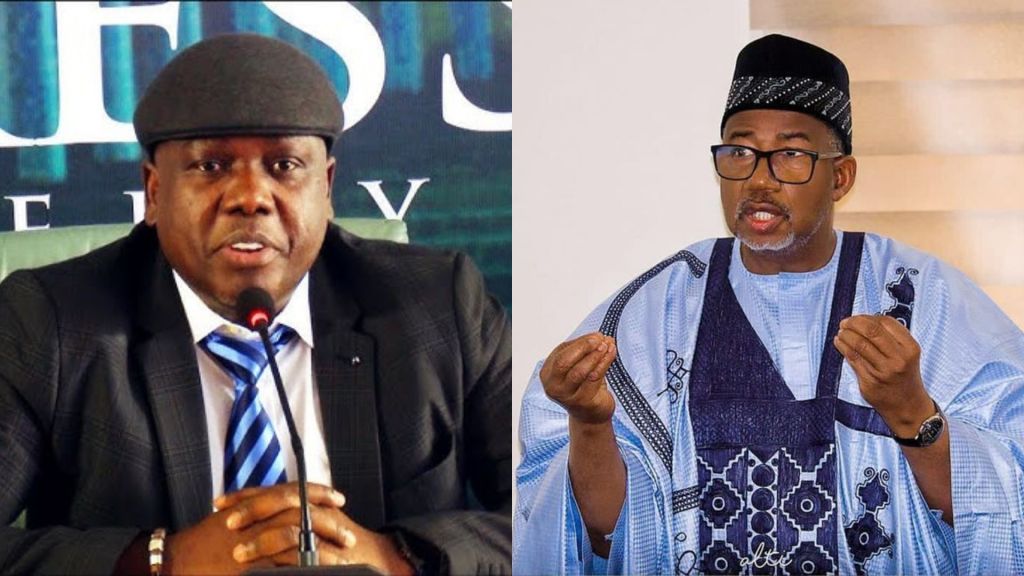
President Bola Tinubu's Special Adviser on Policy Communication, Daniel Bwala, has claimed that some elements were blackmailing the president over the controversial Tax Reform Bills before the National Assembly.
Bwala's remark comes on the back of Bauchi State Governor Bala Mohammed's recent warning to Tinubu over the proposed four-piece legislation.
In a recent interview, Mohammed accused the President of ignoring public concerns over the bills, stating that if passed, the legislation could have “concomitant effects” on the financial stability of states and further deepen the hardship in the country.
“We believe that as the leader of the federation and all other federating units, they should listen to us, not act arrogantly, or show impunity as though they can proceed regardless,” Mohammed said.
Bwala tackles Mohammed
Speaking in an interview with Channels Television on Wednesday, January 1, 2025, the presidential aide defended his principal's position, noting that the contentious bills are under the National Assembly's purview.
He dismissed the Governor's claims, arguing that Tinubu's actions demonstrate responsiveness to Nigerians' concerns.
He noted that the President has not abused democratic processes to push through the reforms, advising governors critical of the reforms to engage lawmakers from their states to channel their concerns rather than placing the blame on the President.
“The part I disagreed with him (Bauchi governor) is that he created the insinuation that the president does not listen.
ALSO READ: Tinubu’s tax reform bills split governors in heated meeting - details emerge
“If a group of governors does not get the president to do their bidding, it does not mean he is not responding to Nigerians because the governors are 37 — including the FCT ministers — but Nigerians are over 200 million.
“I think that rather than scapegoating and blackmailing the president, the governors should talk to their lawmakers.
“It is a democracy. He has presented the bills to the national assembly. It is the national assembly that will deliberate and do what they need to do in the process of the passage.
“If a governor has a concern after having a conversation with the federal government, he should dialogue with national assembly members in his state to articulate his concerns in the national assembly. At the end of the day, it will come down to voting.
“I think a lot of people are blackmailing the president and I’m not particularly mentioning anybody. The president is not in the legislative branch of government,” Bwala said.
Controversies over tax reform bills
The proposed tax reform bills comprise the Nigeria Tax Bill, the Nigeria Tax Administration Bill, the Nigeria Revenue Service Establishment Bill, and the Joint Revenue Board Establishment Bill.
While there have been several contestations over certain provisions in the bills, the sticky point has been the proposed revision of the Value-Added Tax (VAT) sharing formula.
The VAT debate has drawn widespread opposition, particularly from stakeholders in northern Nigeria, who raised the alarm over the alleged financial marginalisation the passing of the legislation could bring to the region.
But, during a presidential chat in December 2024, the President said no going back on the proposal, stressing that the tax reform bills "have come to stay."
However, Tinubu also expressed his openness to make concessions to address concerns raised by stakeholders regarding the proposed laws.